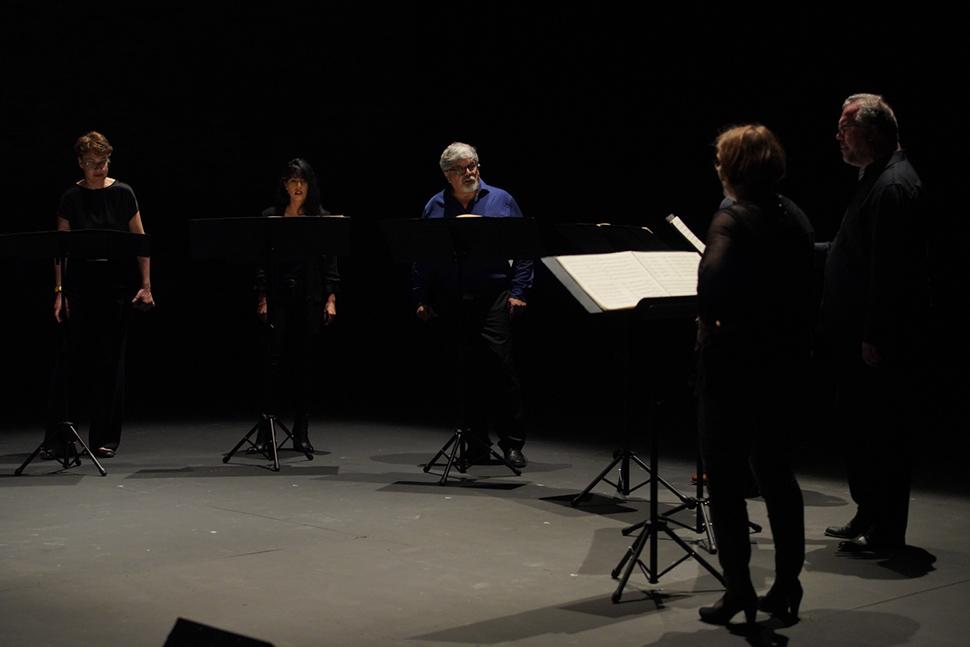Manuel Hidalgo Navas chooses the sonnet ir y quedarse by Lope de Vega for his piece for vocal quintet entitled ir. The feelings of loneliness, loss, unease and frustration of the lover in the absence of the beloved are conveyed by the Spanish poet by means of various linguistic expedients ranging from the use of the infinitive to emphasise the effect of immobility to the use of oxymorons and chiasmi to enhance the sense of loneliness and suffering. The music develops two principal ideas: on one hand, the emergence of a complex soliloquy for five voices, and on the other the game of opposites. As in the other two compositions in the programme, in this, too, there is an element of theatricality, not just on the concert platform, but manifest also in the musical treatment of the voices. Emerging from a cloud of noises, in their materiality the voices confront the text, imparting to it a definite form. Playing with the double role of language – at once a constricting cage made up of words and a means of communication – the music gives life back to the words of the poet and confers on them new meanings.
